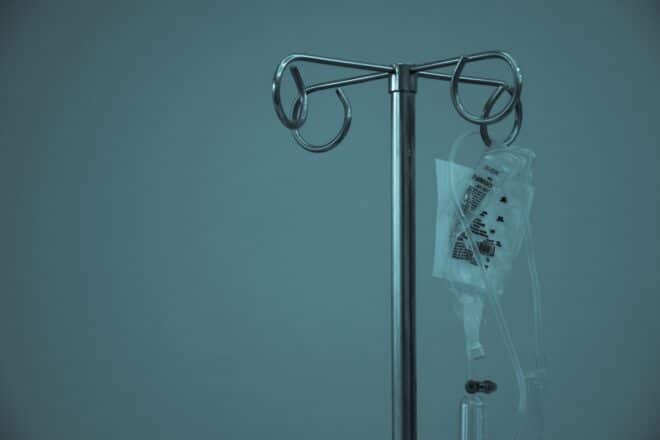Navigating the complexities of managing medications for older adults can seem like a daunting task, with a number of factors to consider. Fundamentally, medicines are utilised to counter diseases and can be both over the counter and prescribed by a medical professional. However, it’s important to remember, particularly for older adults who may be using several medications, that there is increased potential for adverse side effects. Consequently, seeking professional advice before combining different medicines is crucial to avoid unwanted scenarios. Moreover, conveying a comprehensive list of visual and auditory disturbances to the health care provider prior to starting any new medicine plays a significant role in ensuring safety. It’s equally vital to regularly communicate with health care providers about current medicine usage and to follow all instructions printed on prescription labels diligently. Travelling, too, may necessitate modifications in medication schedules, contingent on changes in time zones, daily routines and dietary plans. Understanding that side effects, which may range from minor discomfort to life-threatening situations, may occur while using medicines is crucial. It’s also key to remember that medicines may be known by both generic and brand names while maintaining the same working mechanism, potency and quality. Lastly, considering that keeping tabs on medicines can be arduous for many older adults, maintaining an exhaustive list of all medicines being used proves to be advantageous.

Understanding the Use of Medicines in Older Adults
The Necessity of Medicines in Treating Diseases
Medicines have become an integral part of contemporary life; we use them to alleviate pain, cure diseases, and enhance our overall well-being. Especially in older adults, the ongoing use of medicines can help in managing chronic conditions, preserving health, and improving the quality of life.
The Difference Between Over-the-Counter and Prescription Medicine
Understanding the difference between over-the-counter (OTC) and prescription medicines is crucial. Over-the-counter medicines are those you can purchase without needing a prescription from your doctor, like pain relievers or cough suppressants. On the other hand, prescription medicines are those which you can only obtain with a prescription from a healthcare provider because they are typically stronger and treat more complex ailments.
How Medicines Work: Generic and Brand Names
Medicines, regardless of whether they are known by their generic or brand names, have been designed to treat specific conditions. While brand-name drugs are introduced first and hold patents initially, generic drugs are typically released after the patent expires and are usually cheaper. Moreover, although they may differ in color or shape, they contain the same active ingredients and work the same way as the brand-name versions.
The Risk of Multiple Medicines Use in Older Adults
The Danger of Combining Multiple Medicines
Often, older adults have to take multiple medicines simultaneously to manage different health concerns. However, combining medications without the advice of a healthcare professional can be dangerous. This is because different medicines can interact negatively, causing reduced effectiveness or even harmful side effects.
How Multiple Medications Increase the Risk of Side Effects
Each medication, on its own, can potentially bring about side effects, which can range from minor disturbances to serious health risks. The more medicines you take, the higher your risk of experiencing adverse side effects. Furthermore, the likelihood of a drug-drug interaction increases as the number of medications taken concurrently increases.
The Need for Professional Advice When Mixing Medicines
It’s crucial to discuss your medication regimen with your healthcare provider before starting a new medicine. Doctors and pharmacists can monitor your drug use more effectively if they are aware of all the medicines you are taking, ensuring that they offer safe and appropriate treatment options. They can identify any potential drug interactions and offer alternatives if necessary.
The Importance of Adequate Medicine Information
The Need for a Full List of All Medicines Being Used
Keeping a list of all your medications is highly recommended. This should include prescription medicines, over-the-counter drugs, vitamins, and herbal supplements. This comprehensive list will help healthcare providers evaluate the safety and effectiveness of your current treatment plan.
Communicating Current Medicine Use to the Health Care Provider
Communication with your healthcare provider is essential. During every medical visit, share your current list of medicines with them. This will allow them to monitor your treatment, adjust dosages, change medications, or pinpoint the cause of any new or unexplained symptoms.
Understanding Prescription Labels and Instructions
Prescription labels contain vital information about your medicine, including its name, dosage, and administration instructions. Reading and understanding these labels is essential for safe and effective medication use. If you are unsure or confused about any aspect of your medication, don’t hesitate to ask your pharmacist or doctor for clarification.
Managing Medicine Intake Schedule for Older Adults
Setting Up a Useful Medicine Schedule
A medicine schedule is a crucial tool in managing multiple medications. Detailing what medicines to take, when, how, and with what can prevent missed doses and minimize medication errors. This schedule should be clearly written and easily accessible.
Adjusting Medicine Schedule When Traveling
When you travel, there may be changes in time zones, daily routines, and diet, which could impact your medicine schedule. Planning ahead includes knowing how these changes will affect the timing of your medications. Discuss this with your healthcare provider to adjust your medication schedule if necessary.
Impact of Changes in Routines and Diets on Medicine Effectiveness
Changes in routines and diets can alter the effectiveness of certain medicines. For instance, some medications should be taken with food, while others work better on an empty stomach. Similarly, alterations in your daily routine could impact your medication schedule. It’s important to discuss any planned changes in routine or diet with your healthcare provider.

Dealing with Side Effects of Medicines
Understanding What Side Effects Are
Side effects are unwanted symptoms or feelings that come along with the use of certain medicines. They can range from mild ones, such as dry mouth or drowsiness, to severe ones, including allergic reactions or palpitations. Everyone reacts to medication differently, so not everyone will get the same side effects.
The Severity Range of Side Effects
Side effects can range from being a minor nuisance to life-threatening. Some may become less troublesome over time as your body adapts to the medication. However, others may require immediate medical attention. It’s crucial to be knowledgeable about the possible side effects of your medicines and how to deal with them appropriately.
What Actions to Take When Side Effects Occur
If you experience a side effect to a medication, it’s important to contact your healthcare provider. They can guide you on how to manage it or decide to switch you to a different medicine. In the case of a severe reaction, you should seek immediate medical help.
Managing Medicine Usage through Regular Discussions
The Importance of Regular Discussions with Healthcare Providers
Regular and open discussions with your healthcare provider about your current medicine use can prevent problems and ensure that your treatment is effective. They can address your concerns, offer advice, and provide you with the most up-to-date information about your medicines.
Subjects to Discuss During Regular Health Check-ups
During your health check-ups, it is critical to discuss the effectiveness of your current regimen, any side effects you are experiencing, your ability to manage your medicine schedule, and any changes in your health status. Additionally, if you are using any non-prescription medications or supplements, be sure to inform your healthcare provider.
How Often Should Older Adults Have Discussions About Medicine Usage with Their Healthcare Provider
The frequency of discussions about medicine usage will vary from person to person and will depend on factors such as the number of medicines used, complexity of the health conditions treated, and whether there have been recent changes to the medicine regimen. However, it is advisable to have these discussions at least once every six months.

Coordination Between Different Healthcare Providers
Why Coordinating Medication Information Between Different Providers is Important
If you see multiple healthcare providers, it is essential for all of them to be on the same page regarding your medications. This ensures that they do not prescribe medications that could interact negatively with something you are already taking and that they are aware of any drug allergies or previous adverse drug reactions.
How to Effectively Manage Information Across Multiple Providers
To ensure effective communication among your healthcare providers, always bring your updated medication list during every medical appointment. If you are internet savvy, using a medicine management app would assist in maintaining and sharing an updated list of your medications.
Challenges and Solutions in Healthcare Provider Coordination
Coordinating medication information among healthcare providers can be complex, especially if they work in different health systems. One solution is to assign a primary healthcare provider who will help manage your overall healthcare, including medication management. You can also consider involving a family member or a caregiver, who can help you keep everything organized and advocate for you during medical appointments.
Maintaining an Efficient Medicine List
Why a Comprehensive List of Medicines is Essential
Maintaining an up-to-date list of all your medicines is essential as it helps to prevent duplications, interactions, and allergic reactions. This list should include prescription medicines, OTC products, vitamins, and supplements.
What Information Should be Included in the Medicine List
A comprehensive medicine list should include the name of the medication, the dosage, how and when it should be taken, the reason for using it, and the prescribing doctor’s name. If the medication is to be taken only when needed, this should be noted.
How Often Should the Medicine List be Updated
The medicine list should be updated every time a medication is added or stopped, or when a dosage is changed. Additionally, the list should be reviewed and updated at least once every six months, even if no changes have been made, to ensure it remains accurate.
Emergency Situations Involving Medicines
Understanding When a Medicine-Related Situation is an Emergency
It’s crucial to understand when a medicine-related situation is an emergency. Severe allergic reactions like rash, breathing difficulty, or swelling of the face or mouth, substantial changes in body function, or an appearance of dangerous symptoms like chest pain should be treated immediately.
What to Do in a Medicine-Related Emergency
In a medicine-related emergency, seeking immediate medical help is crucial. Contact your local emergency medical service or go to the nearest emergency room. Additionally, providing healthcare professionals with your comprehensive medication list can offer them valuable information needed to treat you effectively.
Preventing Medicine-Related Emergencies
Preventing medicine-related emergencies starts with understanding your medicines, closely following the prescribed usage, regularly reviewing all your medicines with your healthcare provider, and alerting them to any changes in your health status.
Future Perspective on Medicine Management for Older Adults
Emerging Trends in Seniors’ Medicine Management
The future of medication management is looking brighter with advances in technology. Currently, several apps can help manage medications, their timings, dosages, and side effects. Plus, the advent of telemedicine has made frequent consultations with healthcare providers more accessible and convenient.
Improving Medication Safety for the Elderly
To further improve medication safety, healthcare professionals are actively working towards reducing the unnecessary use of medication, decreasing polypharmacy, and making packaging more user-friendly for elderly patients.
Role of New Technologies in Managing Medicines for Older Adults
New technologies, such as electronic pill dispensers, medicine management apps, and wearable devices, offer significant potential for medication management. These devices can help keep track of medication schedules, alert if a dose is missed, and even provide necessary reminders for prescription refills.
Medication management in older adults is multifaceted and requires good communication, organization, and an understanding of each individual’s needs and routines. By taking an active role in medication management, older adults can ensure their medications are safe, effective, and enhancing their health and quality of life.
